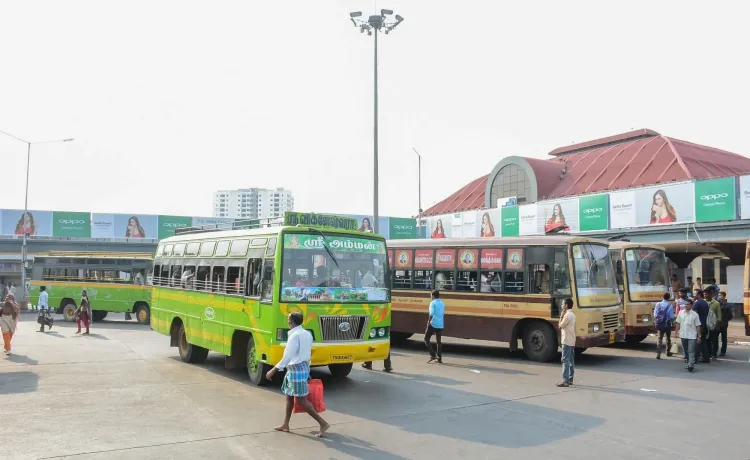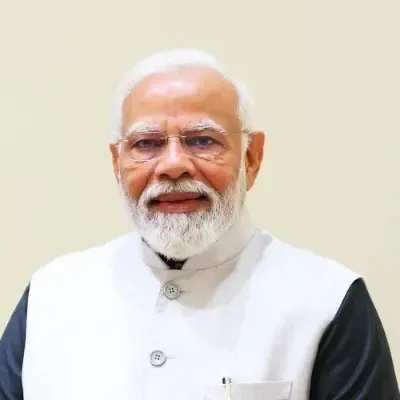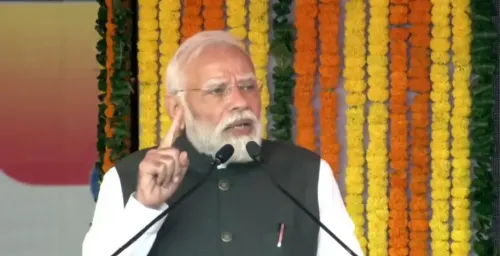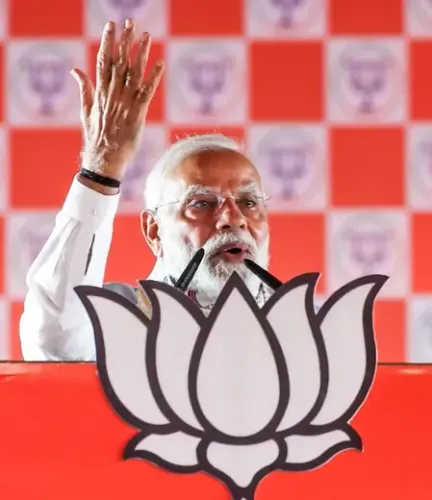Is the TN government really planning a bus fare hike?

Synopsis
Key Takeaways
- Public feedback is crucial in the fare revision process.
- The last fare increase was in 2018, indicating the need for adjustment.
- Special concessions for vulnerable groups will likely persist.
- The government is seeking to balance operational costs with commuter affordability.
- Engagement in the feedback process can influence the final decision.
Chennai, May 29 (NationPress) The government of Tamil Nadu has put forward a proposal for a revision in bus fares throughout the state and has commenced a process to collect public feedback prior to finalizing this initiative.
This proposed fare increase is part of a broader strategy aimed at tackling escalating operational costs and upgrading the public transport framework. Officials have invited the public to share their opinions and concerns regarding the fare adjustments either in person or via mail to the office of the Transport and Road Safety Commissioner located in Guindy, Chennai.
The government has committed to taking into serious account the feedback from commuters before arriving at a final verdict.
This initiative to solicit public opinion highlights the vital role of bus transport in Tamil Nadu, where state-operated buses serve as the primary means of transportation for a substantial number of individuals, especially in rural and semi-urban regions.
With millions of commuters relying on government buses for their daily commutes, any alteration in the fare structure is anticipated to significantly affect household budgets and overall living costs.
Transport department officials have indicated that the fare adjustment has been overdue, with the last increase occurring in 2018. Over time, the Tamil Nadu State Transport Corporation has encountered increasing financial challenges due to soaring fuel prices, maintenance expenses, and employee salaries.
Officials contend that a reasonable increase in fares is necessary to maintain the efficiency of the transport system without sacrificing service quality or frequency.
Although the government has not disclosed the specific percentage of the proposed increase, sources suggest that the adjustments will be rolled out gradually to ease the burden on regular commuters.
Special categories such as students, senior citizens, and differently-abled individuals are expected to continue receiving concessions even after the fare revision.
Public feedback will be collected for a limited duration, after which the responses will be compiled and evaluated by a designated committee. Based on their findings, the ultimate decision regarding fare revision will be made and announced officially.
The government has encouraged citizens to engage actively in the feedback process, stressing that an inclusive decision-making approach will yield the most favorable results for both the public and the transport system.









